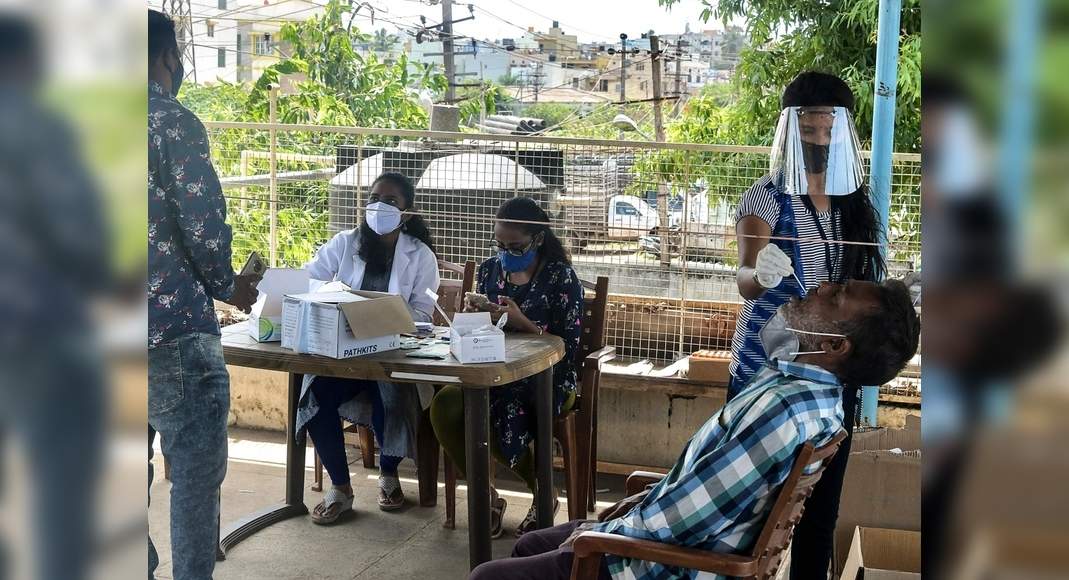HYDERABAD: The highly infectious Delta variant of Covid-19 that first surfaced in India is feared to have mutated into a more virulent version called AY.1 or Delta+ –– one that is possibly capable of resisting even the monoclonal antibodies cocktail currently being prescribed as a cure for the virus.
According to Public Health England, an executive agency of the UK government’s health and social care department, 63 genomes of Delta (B.1.617.2) with the new K417N mutation had been identified so far on the global science initiative GISAID.
In its latest report on Covid-19 variants, updated till last Friday, India had reported six cases of Delta+ as of June 7.
Read AlsoCovid-19: Delta variant is sprinting to become dominant in PunjabThe highly contagious Delta variant (B.1.617) of Covid-19 is fast making its presence felt in Punjab by coming close to overtaking the commonly found Alpha variant (B.1.1.7) of concern that was first detected in the Kent region of the UK.Dr Vinod Scaria, clinician and computational biologist at Delhi’s Institute of Genomics and Integrative Biology, said an important point to consider regarding K417N was “evidence suggesting resistance to monoclonal antibodies Casirivimab and Imdevimab”.
This cocktail has received emergency-use authorisation in the country from the Central Drugs Standard Control Organisation.
Read AlsoCovid-19: Delta variant transmits more in householdsDecoding why several households have reported multiple cases of Covid-19 infection this time as compared to mostly single cases in families in the earlier wave, Public Health England, a UK government health organisation, has found that the Delta variant (B.1.617.2) first discovered in India, spreadsScaria tweeted on Sunday that among the emerging variants, Delta+ (B.1.617.2.1) was characterised by the acquisition of the K417N mutation that maps to the receptor binding domain and has also been associated with immune escape.
“The variant frequency for K417N is not much in India.
As Delta continues to evolve, acquiring new mutations, there is a lot of interest in understanding these mutations,” he wrote, naming the new mutant Delta+.
Read AlsoWHO blames India’s 2nd wave on premature opening up, social mixingThe World Health Organization (WHO) has, at the G7 summit in the UK, blamed the second wave of the Covid-19 pandemic in India on the “premature” opening up of the society and relaxation of public health measures, as well as the emergence of new variants and unequal vaccine distribution.Public Health England’s report said the Delta-AY.1 version was found through routine scanning of variations in Delta.
A small number of detected sequences had acquired the spike protein mutation K417N, it said.
Scientists attribute the earliest such sequence to Europe in late March.
Scaria said 127 sequences from Europe, Asia and America were now available in the public domain.
Scaria pointed out that several genomes now available across the world were part of the AY.1 or B.1.617.2.1 lineage.







